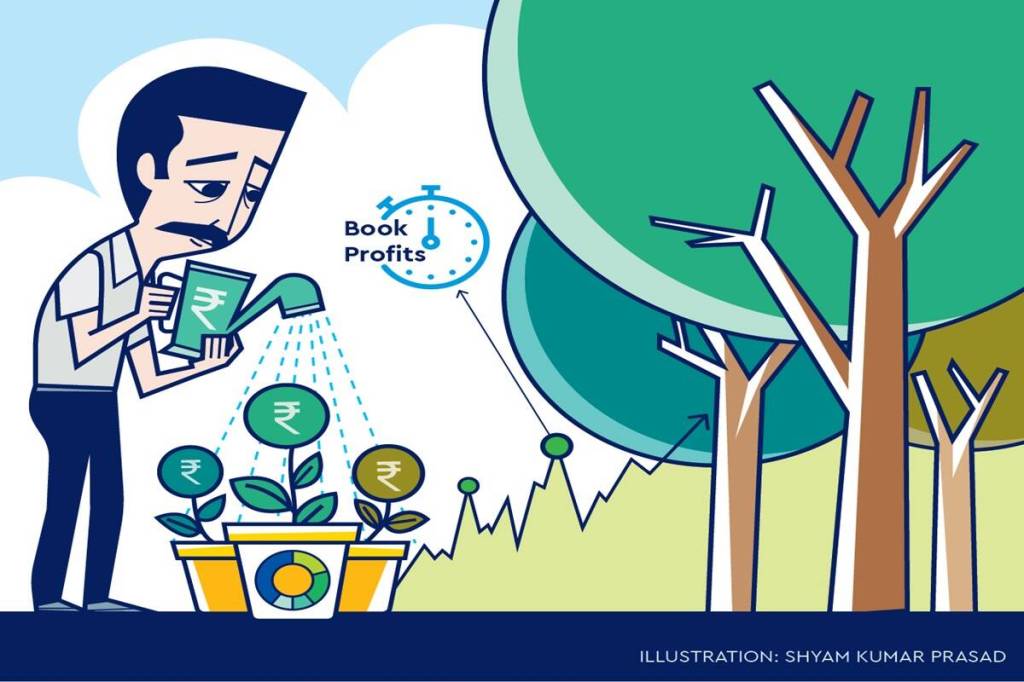One of the hardest tasks of equity investing is patience.
Industry experts say historically, patient Indian equity investors have been rewarded with superior long-term returns closely mirroring the earnings growth of the underlying companies.
Arun Kumar, Head of Research, FundsIndia says, “Despite the great returns, most investors are unable to benefit from them as they end up buying high and selling low due to a variety of behavioural biases.”
Here are two behavioural traits that can help you stay invested in equities for the long term and reap the benefits of compounding in equities.
Faith in Equities over the long term
The first key behavioural trait required for long-term equity investing is ‘Faith in Equities’.
Kumar says, “While Indian equities have provided impressive returns over the long term, at regular intervals, our faith is challenged by temporary declines in the market.”
In the short run, experts say the Indian equity markets have experienced 10-20 per cent temporary declines almost every year. Once every 7-10 years, there have been larger temporary declines of around 30-60 per cent such as the covid crisis in 2020, the global financial crisis in 2008, the tech bubble in 2000, etc.
“Whenever the market declines (which one should expect on a regular basis), one’s conviction on Indian entrepreneurship (read as equities) is put to test,” says Kumar.
If you really think about it, according to experts, equity investing for the long term finally boils down to your belief in human progress and entrepreneurship. “One is simply betting that entrepreneurs (who take a higher risk) on aggregate will get compensated with higher returns in the long run.
So unless one gets this basic ingredient called faith in place, it is impossible for one to stick to equities during a bad market” explains Kumar.
Ability to Suffer in the short term
The second key behavioural ingredient required for long term investing — is the Ability to Suffer in the Short Term.
Most investors who have tried to avoid the pain of short-term declines by trying to time the markets have ended up with subpar returns as they usually stay out for too long in fear and miss out on the upside.
Kumar explains, “The Legendary investor Peter Lynch profoundly sums this up – “Far more money has been lost by investors preparing for corrections, or trying to anticipate corrections than has been lost in corrections themselves.”
A better approach is to accept rather than avoid the inevitable declines and view it as an ‘emotional fee’ to be paid for reasonable long-term returns.”
Summing it up
So as investors, one needs to accept both realistic pessimism about the short run and pragmatic optimism about the long term.
This means building adequate ‘room for error’ via diversification (across asset classes, investment styles, sectors, and geographies) in your investment plan to survive the short term while our long-term investments help us stick to our plan patiently for a long enough period to benefit from compounding.
Kumar says, “Sensible long-term investing finally boils down to the subtle art of balancing both these contradictory mindsets i.e., faith in equities over the long term and ability to suffer in the short term.”
Irrational investing behaviour by the investor can lead to poor portfolio performance. Experts say it is observed that most of the buy and sell decisions have proved to be suboptimal due to such behaviour.
Hence, “to make better decisions and to stick to equities in the long run one should have faith in human progress, creativity and entrepreneurship. Besides, patient Indian equity investors have always been rewarded with long-term returns closely mirroring the underlying earnings growth of the companies,” adds Kumar.

